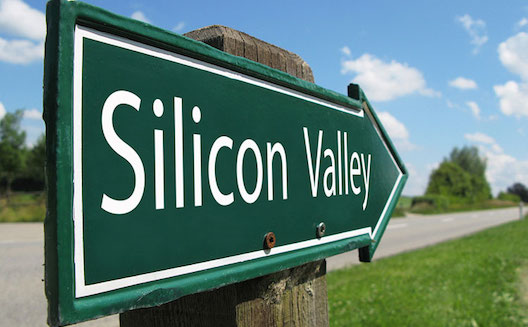Foreign investment elusive for MENA startups, says Lebanese VC

When you talk with Khaled Nasr about venture capital investments and the tech startup scene in both Silicon Valley and the Middle East (ME), you’d better have done your homework. Nasr, a seasoned entrepreneur-turned-venture capitalist, has been an active investor in both. His conclusion is straightforward and simple: “[as a Middle Eastern startup] it’s highly unlikely that you’ll get money from US VCs. What you can do is move your headquarters or senior leadership team to the US and try to come out as a US company.” Relocating to the Valley and benefitting from its vast knowledge and financial resources is indeed a strategy that many international startups have successfully adopted.

But why can’t they raise funds while remaining in the Middle East? “In the hierarchy of Silicon Valley venture firms,” says Nasr, “the focus is generally on the Bay Area first, California second, and the rest of the US after that. Most US VCs don’t have a presence or much awareness outside North America. When you’re investing, one of the most important things is the market; so other than very big markets such as China, India or Brazil, there is not much interest or appetite.” VC funds have different target returns and timelines than angels and angel funds; while angels look for potentially profitable startups with promising teams, VCs “look for a billion dollar company, and, typically, what makes a billion dollar company is a big market.”
In addition, US VCs are not only unfamiliar with the Arab market, but “they usually have negative connotations which are reinforced by what they read in the news every day,” Nasr added.
For these reasons, Arab startups and entrepreneurs who are soliciting US VC money may be wasting their valuable resources, time and otherwise. “As far as I know, few, if any, of those who came here to raise money in the last few years have got any,” asserts Nasr, referring to Lebanese and Arab entrepreneurs who habitually visit the Valley hoping to raise funds from US venture firms. “Targeting angels, especially diaspora angels, as individuals, could work, but approaching institutional venture firms is likely to be a very frustrating experience,” Nasr added.
Nevertheless, Nasr doesn’t believe that Arab startups and entrepreneurs should give up on their Valley diaspora connections. Institutional investment might not be readily available, but “advice, mentorship, and connections” are much more accessible and, it could be argued, equally valuable. “People come to me for two reasons: they want advice on how to get money from US VCs, which I think is extremely hard, or they want introductions, to other people who can help them in developing the market or the product, or to people who could become advisors,” says Nasr. He believes that the latter is what both the MENA entrepreneurs and their counterparts in the diaspora should bank on and explore, rather than constantly focusing on the financial aspect.

Nasr, born and raised in Lebanon, has long been an active member of the Lebanese and Arab tech and venture diaspora community in Silicon Valley. He is one of the founders of LebNet, and a regular speaker and contributor atTechWadi events: the two main Lebanese and Arab professional diaspora networks in the Valley. “The initial thinking about LebNet was for it to be a local networking group, to help people out, provide some value. Then it developed, and about five years ago we started thinking about ways to connect with the tech scene back in Lebanon,” he added. Since then, Nasr and his diaspora compatriots, have become more and more occupied by mentoring, connecting, and advising entrepreneurs back in the region, and those who come and visit the Valley seeking advice and knowledge.
Earlier this year he gave a talk to about 30 Arab entrepreneurs at the MIT Enterprise Forum Arab Startup Competition. Activities like these, which create a fertile medium for knowledge transfer from successful members of the diaspora to ambitious and knowledge-hungry young entrepreneurs, convince Nasr and his peers at LebNet and TechWadi of their ability to give back and contribute to the growth of the entrepreneurial scene in the region.
Between graduating from Cambridge University with degrees in mathematics and social and political science, and moving to the venture side of entrepreneurship, Nasr was involved in seven startups over the course of 16 years. “The first two [startups] failed – I was young and didn’t care much. The third one, in the late 1980s, was a home run,” Nasr recalls. He’s been a partner with InterWest since 2005, where he focused on IT investments in mobile, cloud, and data center infrastructure. Prior to that he was with Alta Partners,and has also served as an executive in several IT, networking, and telecommunications firms.
What do Nasr and his colleagues aspire to accomplish in the long run? The list is long. Helping a group of Lebanese and Arab startups, fostered and backed by local VC funds, incubators, accelerators, universities and assisted and mentored by diaspora VCs, executives, and entrepreneurs, make a successful breakthrough in the global market. “We need our big success stories” he says. This could set the trend and shine a light on the region’s most promising attributes: its human capital, entrepreneurial spirit and can-do attitude.


